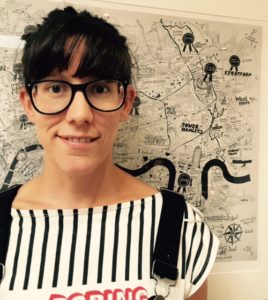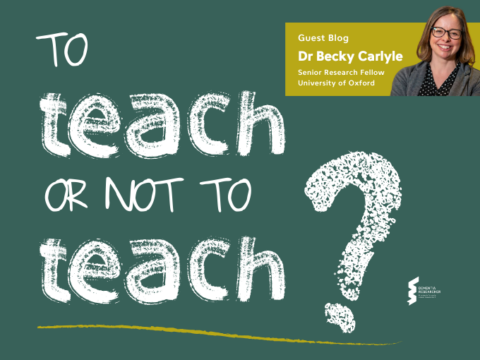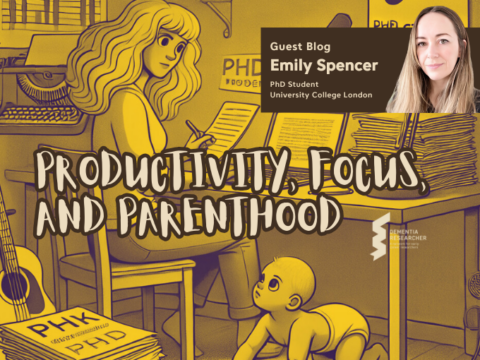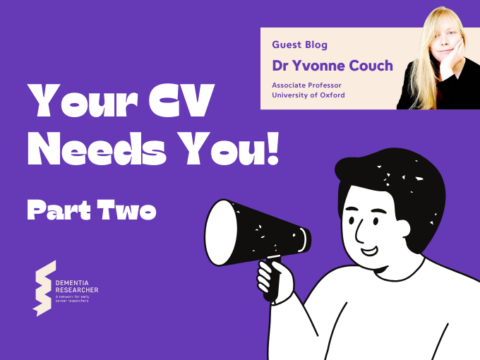 I have currently got around seven months until the end of my PhD – until my funding runs out and I officially enter a period of CRS (Continued Research Status). Prior to applying for my PhD I did not know that this extra period of unpaid limbo time existed. I, like many people I now speak to, thought that the period of the PhD was literally the period of the PhD. That I would do my research, write my thesis and submit it as well as compete my viva within this period. Interestingly I have realised that this is not necessarily how it works. The CRS period is a useful safety net. It gives me the time to finish my thesis, to finish my work, properly. That said I do need to write most of my thesis before then.
I have currently got around seven months until the end of my PhD – until my funding runs out and I officially enter a period of CRS (Continued Research Status). Prior to applying for my PhD I did not know that this extra period of unpaid limbo time existed. I, like many people I now speak to, thought that the period of the PhD was literally the period of the PhD. That I would do my research, write my thesis and submit it as well as compete my viva within this period. Interestingly I have realised that this is not necessarily how it works. The CRS period is a useful safety net. It gives me the time to finish my thesis, to finish my work, properly. That said I do need to write most of my thesis before then.
Thinking about my thesis I have noticed a strange physical sensation. It is not dissimilar to standing on the top diving board deciding when to jump, or at the start of a marathon race waiting to get doing. I suspect this feeling is probably useful. This same feeling (a bit like nausea) has helped me run a couple of marathons, write a couple of books and write and submit my NIHR fellowship application. Without this feeling, I may lose track and get distracted. Yet I also risk letting it dominate and entering a phase of stress and anxiety. This would not be so helpful.
So. How can I maintain an equilibrium. I have managed to ride the PhD wave relatively emotionally unscathed. Much of this is due to the epic supervision I have and doing a lot of exercise (most days- it really helps me excise my demons).
But I just wanted to share a few tips and hints that seemed small but have really helped on route:
-
Write a Gantt chart at the start of your studies – identify all the tasks and milestones you anticipate and outline when you will work on these.
-
Revisit the Gantt chart regularly with your supervisors and remind yourself of your schedule, this is your to-do list and should be updated with everything you have done and will do. Refine and adjust accordingly.
-
Include writing time on the Gantt chart. Writing time for articles and thesis chapters. You may even wish to write a new or extra Gantt chart specifically for the thesis chapters, including timelines for initial versions and first, second, third and fourth edits.
-
Plan your thesis chapters early-ish. Write up a potential list of contents as soon as you can. It may seem ridiculous but you can always revise them. At least you’ll have something to visualise. This will form your thesis plan.
-
Some universities accept a thesis by publication i.e. your thesis chapters may comprise articles you have already written and published. Many universities do not allow this, but writing an article can be extremely useful and time efficient when it comes to turning it into a thesis chapter. You basically need to re-visit and rewrite the article to sit within the entire thesis story- explain how it fits into the thesis puzzle. After all your thesis is basically a story or an account of what you have done over the last 3-5 years that comprises the PhD – this is your exam paper.
-
You may write your thesis the other way round, and that is also good. In fact, by writing the thesis chapter you may later have the materials to edit down to an article.
-
Don’t feel intimidated- this thesis is achievable. Demonstrate this to yourself by breaking down the thesis into its component parts- how many words will it be, how many words approximately per chapter, how many sub sections in each chapter. Do you already have those chapter headings and sub sections? As you work through each stage of your research – planning projects and experiments it is likely that you will have created plans and protocols and stages that you can apply here within the subsections.
-
A good way of doing this is to have a look at other thesis in your department, together with the thesis guidelines for your university. Just as you would look at a journal to see if they publish similar articles to yours and analyse the style of both the article and that outlined in the style guide. Identify word counts, guidance on titles, formatting, pages, referencing – it’s all useful stuff.
-
Set yourself small goals each week. Perhaps to spend x amount of time on y. To tackle x section. To write x no. of words. Whatever works for you. Block out sections of your diary, protect them from other tasks so you can write your thesis. Writing is just as important as other PhD tasks. And getting some words under your belt will help you feel a lot better, there will be evidence you are getting there. Tick off your small goals and reward yourself.
-
Tell your supervisor how you feel. Or perhaps your friends and colleagues. Doing a PhD is stressful sometimes, but so is working in general, so is having kids, so is paying the rent or the mortgage, so is being a grown up. You are not on your own in feeling a bit stressed out by life.
-
And no-one explicitly tells you the rules for doing a PhD before you start. That is kind of what your supervisor is there for. Just as your manager or supervisor at work would be. To show you the ropes.
-
Your supervisors are there for you. They want you to succeed. If you don’t succeed that reflects on them, so if they suggest changes or give feedback you feel cross about, it’s fine to be cross for a minute and then think about it a bit more. Try it out. Talk about it. They have a lot more experience in this field than you do.
This is your PhD (no-one else’s) and you are a grown up. Own it. Once you have it, no-one can take it away. So take it by the horns. Get it done. Put it on your CV and wear it with pride. It is pretty darn impressive! Keep your head down, write and you will be rewarded (with champagne hopefully!).
I suspect you know all this- I kind of do. I just need to get on with it. Eeek.
Author
Anna Volkmer is a Speech and Language Therapist and NIHR Doctoral Research Fellow working in Language and Cognition, Department of Psychology and Language Sciences, University College London. Anna is researching Speech and language therapy interventions in language led dementia.
You can follow Anna on Twitter Follow @volkmer_anna

 Print This Post
Print This Post






[…] https://www.dementiaresearcher.nihr.ac.uk/guest-blog-the-thesis-sitting-on-the-edge-of-the-precipice… […]